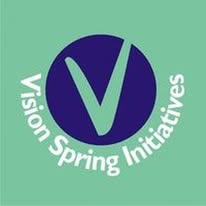2024 THEME: LEARNING FOR LASTING PEACE.
Peace is a state of harmony in which individuals and communities coexist in respect and understanding. It is also the presence of positive elements, such as justice, equality, and compassion. Peace is not just the absence of conflict but also involves addressing the root causes of conflict and working towards long-term solutions that promote human well-being and sustainable development.
It involves fostering social cohesion. Achieving peace requires a comprehensive approach that takes into account the diverse needs and aspirations of individuals and communities by promoting human well-being and sustainable development.
With respect to learning for lasting peace, Vision Spring Initiatives focuses on the crucial role education and teachers play in countering hate speech, a phenomenon that has grown rapidly in recent years with the use of social media, damaging the framework of our societies.
Education is a human right and a lifelong process. Countries will not succeed without an inclusive and equitable, quality education and lifelong opportunities for all, which will help in achieving gender equality and breaking the cycle that is leaving millions of children, youth, and adults behind. Investing in education means investing in the future leaders of the world. The youth, when equipped with quality education, are poised to become ambassadors of peace. Education nurtures leadership qualities, instilling values of tolerance, cooperation, and conflict resolution. These young minds hold the potential to lead with empathy, steering societies towards peace and prosperity.
MOJIROLA JOLAOSO
Vision Spring Initiatives
Hate speech violates the fundamental human rights of the people targeted. It also incites violence, hostility, and discrimination. The theme for this year’s International Day of Education is crucial and relevant in response to the needs of the majority of people who live in conflict-affected arrears.
Education offers multiple opportunities to address the root cause of hate speech and sensitise learners to its form and consequences online and offline. It will also equip them with the skills to recognize and respond to hate and injustice, which will make them respect the value of diversity and human rights and also teach them to recognize the difference between hate speech and freedom of expression.
One-sided narratives that fuel hate speech and justify exclusion can be found across different subjects and educational programmes. Discussing these narratives with school students and acknowledging their nature is integral to the solution. This will include facilitating uncomfortable conversations about social inequality and power dynamics, debunking stereotypes and prejudice, addressing the trauma and stigmatisation caused by violent activities in the past.
Teaching and learning about these issues and reviewing curriculum and educational materials can sensitise learners to contemporary forms of discrimination and increase their understanding of the process that leads societies to violence. It is pivotal to invest in building a sense of community in and out of schools and integrate missing perspectives in the education process by complementing curricular interventions, a safe, inclusive and collaborative classroom atmosphere.
Teachers are advised to use case studies and real-life scenarios to discuss controversial situations and different points of view which will enable learners to manage stress, negative emotions and acknowledge their strengths and weaknesses to resolve conflicts.
To effectively counter hate speech online and offline and foster a safe and inclusive environment free from all forms of hatred and discrimination, efforts made by the teachers in the classroom must be reflected in all aspects of school life, including sports, extracurricular activities, social and cultural events.
Furthermore, internet service providers should devote time and resources to the establishment of safe monitoring and de-amplifying policies, investing in educational tools that enable users to recognise and respond to disinformation.
There is a need to train teachers and learners on the values and practises related to being respectful global and digital citizens and revising and reviewing curricular and educational activities to make them culturally responsive and to include contents that identify hate speech and promotes the right to freedom of expression.
Peace has tangible economic benefits. Stable societies provide a conducive environment for businesses to thrive, attracting investors and generating employment opportunities. When resources are not diverted towards conflict and defence, governments can allocate funds to essential areas such as education, healthcare, and infrastructure, further stimulating economic development. Moreover, the absence of violence and the rule of law create an atmosphere of trust and predictability, facilitating trade and commerce both domestically and internationally.
As we celebrate International Day of Education, Vision Spring Initiatives calls on teachers and educators to be intentional in addressing hate speech and its harmful consequences on students and society as a whole.
REFERENCES.
https://www.graygroupintl.com/blog/peace
https://www.unesco.org/en/articles/addressing-hate-speech-through-education-guide-policy-makers
